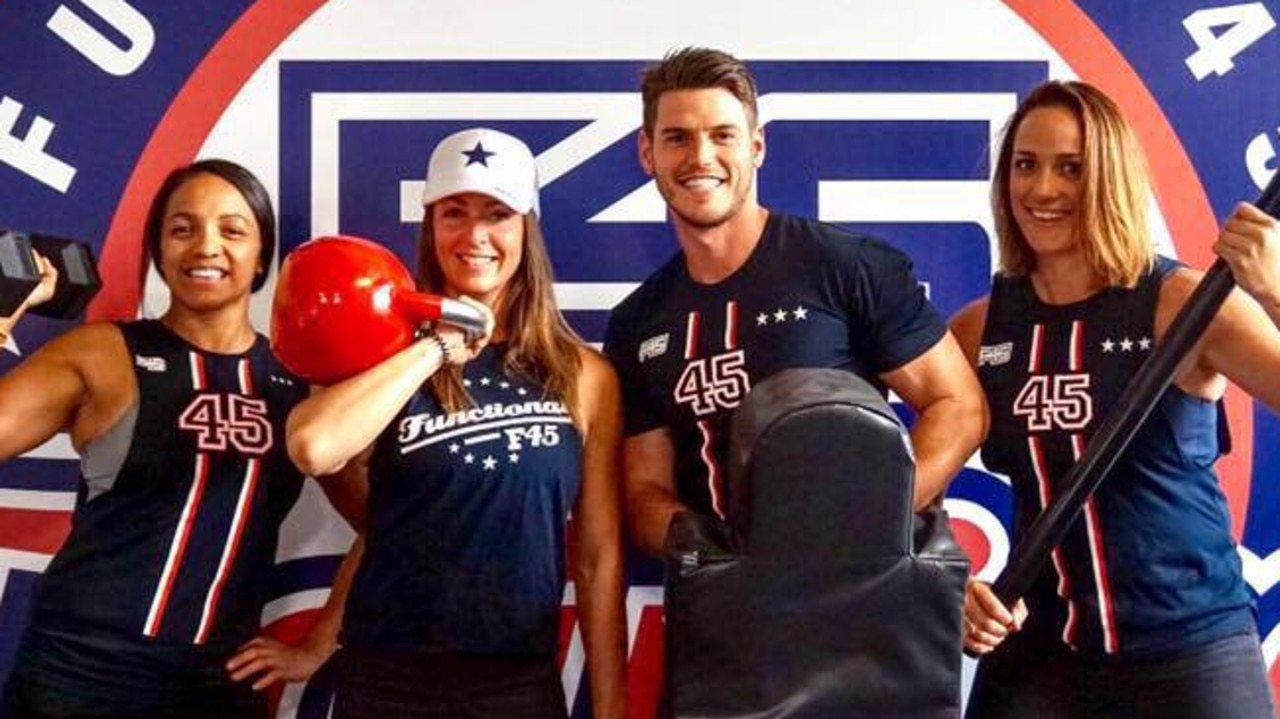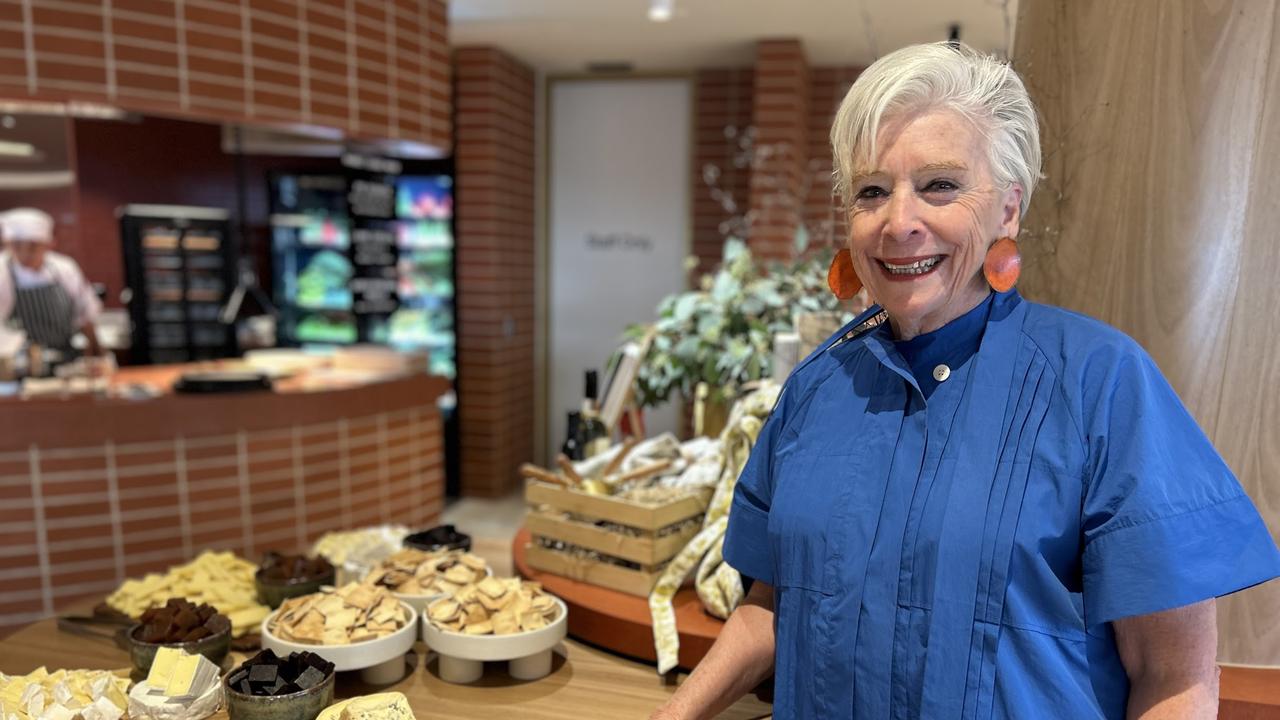Australia’s sushi moguls revealed as sector set to top $1bn revenue with hundreds of stores nationwide
It’s the billion-dollar industry built on $3 and $4 plates, with major deals being cooked up between cashed-up owners. Meet Australia’s sushi giants and find out how much each of them are making from their ubiquitous stores.
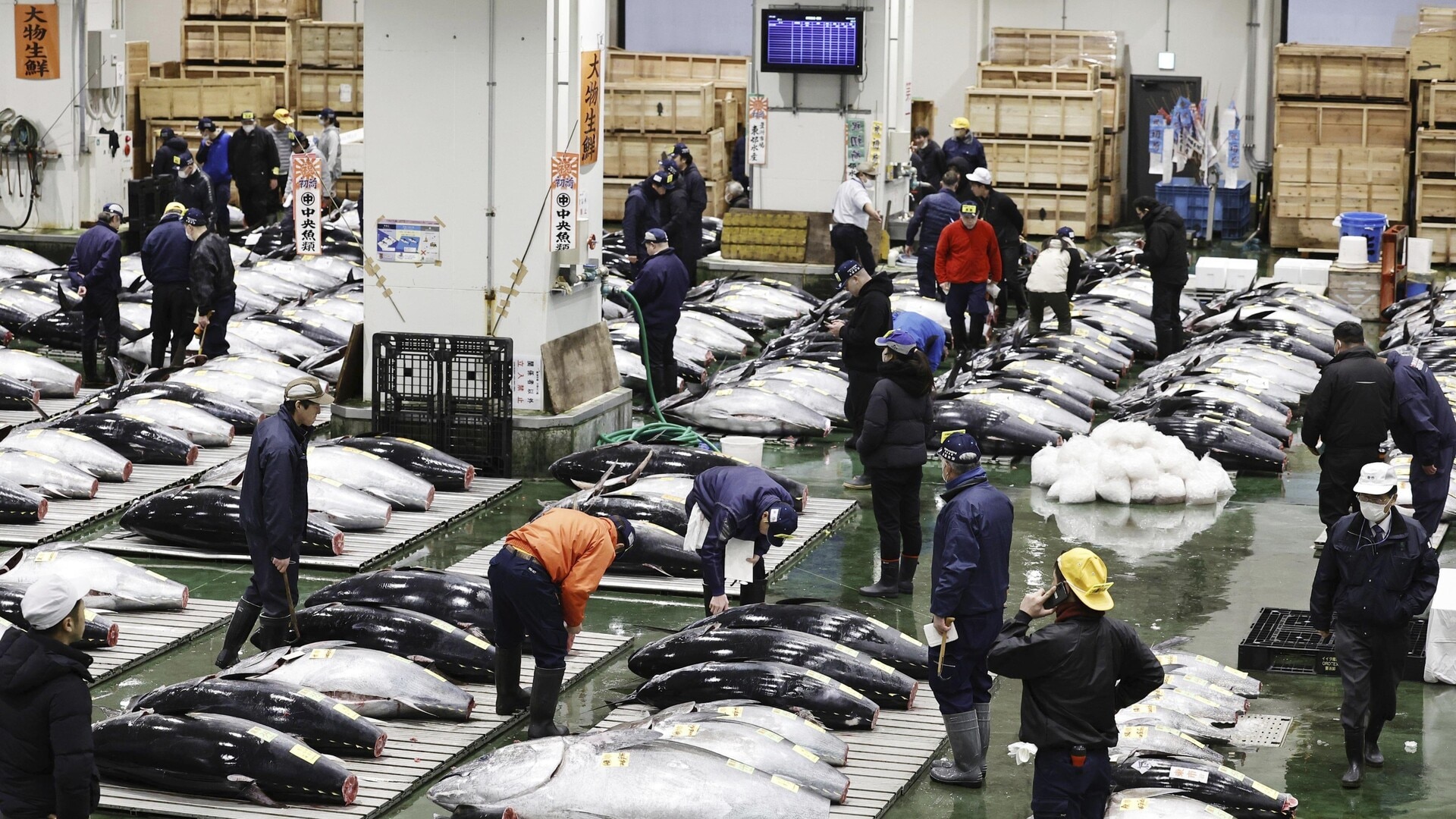
Business
Don't miss out on the headlines from Business. Followed categories will be added to My News.
Bite-sized meals of fish and rice are rolling over an estimated billion dollars each year, as a sea of sushi stores continues to spread across Australia and major deals are cooked up between cashed-up owners.
Individual financial reports from the largest players lift the lid on hundred of millions of dollars of income, fuelling tens of thousands of jobs in every state and territory.
Sushi and sashimi providers generated an estimated $925m revenue last year, according to a report from IBISWorld, with the segment proving the perfect recipe of fast, healthy and ubiquitous.
The segment’s rising popularity has drawn heavy investment in recent years, with Melbourne-born brand Sushi Sushi selling to a private equity firm for $50m in 2019, and that company, Odyssey Private Equity, now looking to offload it for more than $160m.
A brochure for the proposed sale, prepared by corporate advisory Luminis Partners and obtained by News Corp, said sushi was the fastest-growing category in the quick-serve restaurant sector and was ripe for consolidation.
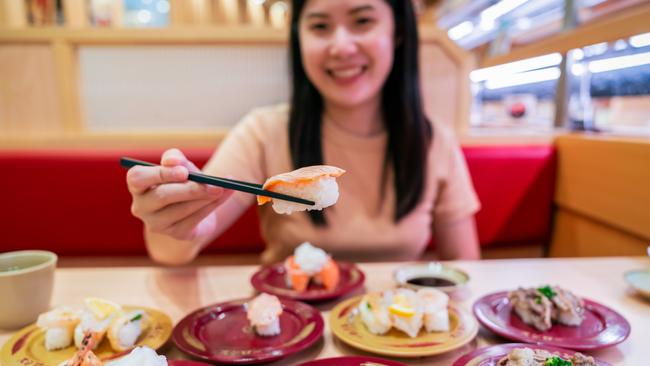
The brochure said the “sushi generation” – a growing, younger demographic – was part of a growing consumer base that was increasingly seeking healthy, high quality convenience food.
Despite the gloss, it hasn’t been smooth sailing for everyone in the sector – Sydney-based national chain Sushi Bay last year succumbed to a tsunami of financial trouble, collapsing under the pressure of $21m in debt.
Much of that was spurred by a record $15.3m fine inflicted by the Fair Work Ombudsman for allegedly underpaying 163 workers – mostly Korean nationals – $650,000 over a number of years and then falsifying records to try to cover it up.
The latest report lodged with ASIC by the liquidator showed more than $7.6m was still owed by Sushi Bay’s holding company alone as of last month.
Questionable outliers aside, IBISWorld's report said sushi’s popularity would continue to rise for as long as time-poor consumers continued to seek out healthier options.
“We found that cost of living pressures have driven some customers towards affordable and quick serve options like sushi, sashimi,” IBISWorld analyst Yentl Liu said.
“Overall, sushi remains resilient due to its health appeal, convenience and flexibility, aligning with the busy lifestyles that we have.”
She added that location seemed to be a key factor for the success of restaurants.
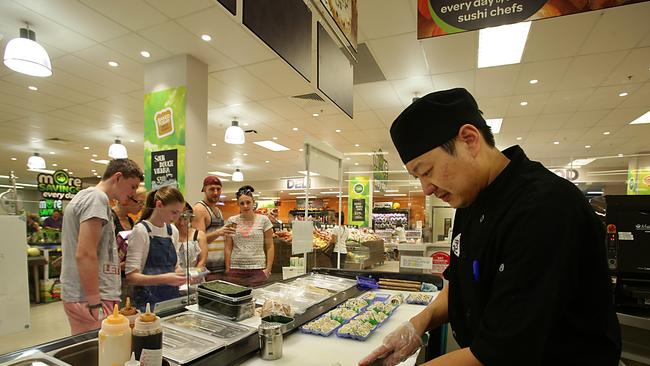
Here are the names behind Australia’s biggest sushi chains:
Sushi Izu
Sushi Izu, owned by US company Advanced Fresh Concepts (AFC) Franchise Corp claims to be the largest sushi franchise in Australia, with about 240 locations in every state of Australia except Tasmania.
AFC’s Australian entity is directed by its California-based global CEO Jeffrey Seiler, along with Yokohama-based Yohei Ogawa and Sydney-based general manager Damien Blakeney.
In its most recently-lodged financial documents, for the 2023-24 financial year, the company reported $139.5m revenue – up $10m on the previous year – for a $2.5m net profit.
On top of its physical stores, Sushi Izu’s products are available at 200 supermarkets, Metro stores and Ampol petrol stations via its partnership with Woolworths.
IAFC Franchise Corp also operates the Sunrise Sushi and Sunrise Kitchen brands and sells into the US and Canada, with more than 4000 locations globally.
Sushi Sushi
Sushi Sushi opened its first location in Box Hill, Melbourne in 1998, out the back of a fish shop.
Co-founder Anna Kasman, who newspapers have crowned Australia’s “sushi queen”, sold the chain to Odyssey Private Equity in 2019 for about $50 million.
Sushi Sushi is back on the market, with its owners engaging Luminis Partners to shop the brand at an asking price of $160m-plus.
The chain now has more than 170 locations, in every state and territory of Australia, and is pushing ahead with an expansion to the Middle East and New Zealand.
It acquired Sushi Musa last year, gobbling up more locations across Sydney, Newcastle and Canberra.
Sushi Sushi employs more than 3000 staff across its network, of which around 40 per cent are operated by franchisees.
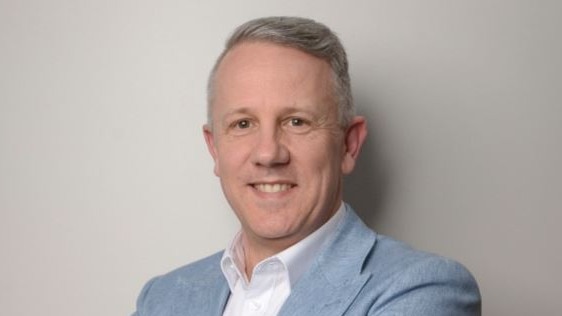
Sushi Hub
University friends Raymond Chen, James Chen and Leon Li opened Sushi Hub, a takeaway sushi shop in an alleyway in Cabramatta, Western Sydney in 2006.
They had previously run a Bread Top franchise together.
The trio remain directors of Sushi Hub Holding, which logged a hefty $91.7m income last financial year, for a $14.5m net profit.
The business has expanded to about 200 stores across the country, in every state and territory.
Sushi Jiro
Sushi Jiro operates a sushi train in a number of its stores, including what it claimed was the longest in the Southern Hemisphere.
The 115 metre long conveyor belt is located at its Chermside store in Brisbane.
Sushi Sushi founder Anna Kasman took ownership of the Sushi Jiro Express chain in September 2022.
The Sushi Jiro franchise had 16 outlets across shopping centres at the time but has since expanded to more than 30 sites across Victoria, Queensland and WA.
The company claimed to have sold 10 million plates last year. Its financial reports are not publicly available.
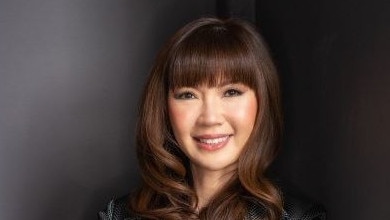
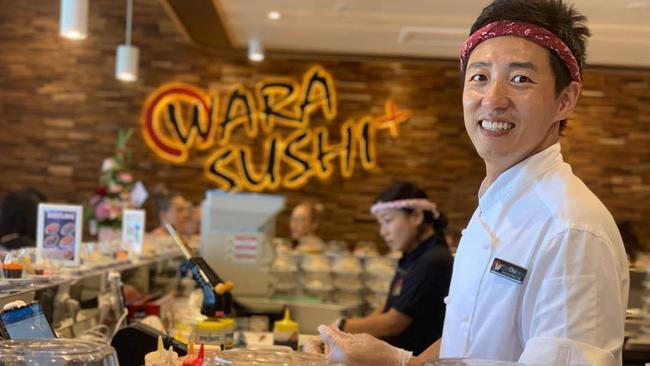
Hero Sushi
Hero Sushi’s holding company, Hero Food Corporation, is directed by Deuk Hee “William” Lee and Hokun “Robert” Hwang, who are also its sole shareholders.
The chain has more than 50 stores across NSW, Queensland, Victoria and the ACT.
Hero Sushi has also had some derailments in its corporate history, landing itself in trouble for underpayment of staff at three stores in 2020, and ultimately being fined $600,000.
The Sydney-based directors were also each personally fined $85,000, while three payroll officers were also fined between $16,000 and $75,000 each.
Its financial reports are not publicly available.
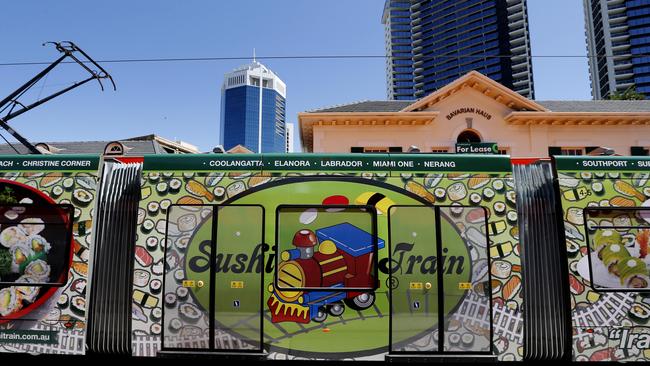
Sushi Train
Japan-born Gold Coaster Bob Jones started Sushi Train as a single restaurant in Surfers Paradise in 1993 after visiting Australia on a business trip.
He’d previously worked as a chef in a French restaurant and in a catering company and set out to create an authentic Japanese experience for diners, adjusted for Australian tastes.
Sushi Train staff are known for their cheerful Japanese “irasshaimase!” welcome greeting customers who enter the store, followed by a hearty “arigato” thanking them for paying the bill.
The company claims to have introduced Australian diners to the sushi conveyor belt, pioneering the health standards that were eventually rolled out to other brands.
It now has 49 stores across Australia and two in New Zealand with two more set to open – one in Sydney and one on the Gold Coast – in just the coming week.
Wara Sushi
Brisbane-based Wara Sushi is owned by manager and former civil engineer Tony Choi.
Launched in Logan, Queensland in 2014, the restaurant chain now has 14 stores in Brisbane, Townsville, Cairns and Mackay as well as Western Australia.
The chain oversees a mix of corporate and franchise-run stores and “strives to be the best tasting sushi in Australia”.
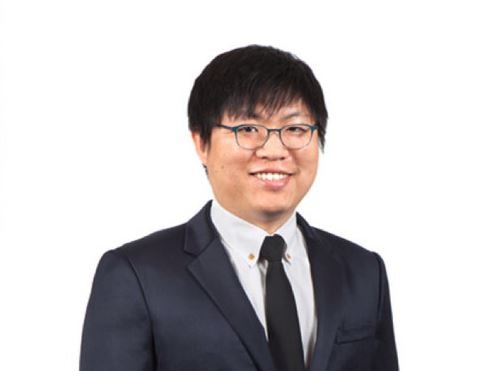
Sushi Naya and Uobei
Sushi Naya has been running for 11 years, averaging a new store each year, with 11 stores now open across Sydney, and five more locations in the pipeline.
The Bankstown-based parent company, Naya Food, is directed by China-born Bingqiang Ni and also operates two Uobei sushi train restaurants, also in Sydney.
More Coverage
Originally published as Australia’s sushi moguls revealed as sector set to top $1bn revenue with hundreds of stores nationwide



